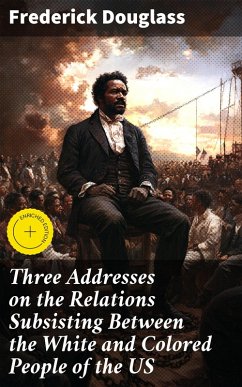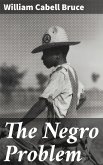Frederick Douglass's 'Three Addresses on the Relations Subsisting Between the White and Colored People of the US' is a powerful collection of speeches that provide a deep and insightful analysis of race relations in America during the 19th century. Douglass's eloquent and persuasive writing style is evident throughout the book, as he presents compelling arguments for the equality and respect that should exist between white and colored individuals. The historical context of the book is crucial, as it sheds light on the pervasive racism and discrimination that plagued American society at that time. Douglass's calls for unity and understanding resonate strongly in today's world, making this book a timeless and relevant read for anyone interested in social justice issues. Frederick Douglass, a former slave who became a prominent abolitionist and writer, drew from his own experiences of oppression and discrimination to write this book. His passion for social reform and his dedication to the fight against slavery fueled his powerful rhetoric and unwavering commitment to racial equality. Douglass's personal journey from bondage to freedom gives his words a unique and poignant perspective that adds depth and authenticity to his arguments. I highly recommend 'Three Addresses on the Relations Subsisting Between the White and Colored People of the US' to readers who are interested in delving into the complexities of race relations in America and learning from one of the most influential figures in the fight against slavery and racism. Douglass's timeless wisdom and powerful rhetoric make this book a valuable resource for understanding the ongoing struggle for equality and justice in our society.








